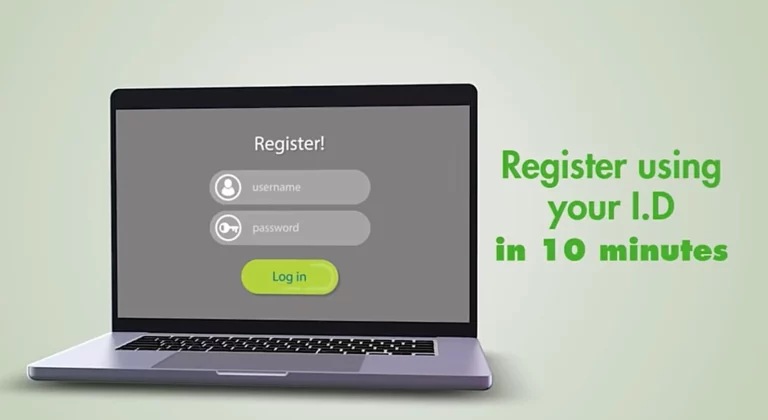When it comes to starting or expanding a business in the Philippines, one of the most important considerations is financing. Fortunately, there are various types of business loans available to small and medium-sized enterprises (SMEs) in the country.
In this blog post, we will discuss the different types of business loans available in the Philippines, including their features, requirements, and suitability for different types of businesses. By the end, you should have a good understanding of the options available to you and be able to make an informed decision about which type of business loan is best for your needs.
Business Loans in the Philippines: An Overview
Business loans are a crucial aspect of the Philippine economy, especially for small businesses that may not have access to large amounts of capital. These loans can provide the necessary funding for businesses to grow, expand, or simply cover day-to-day expenses.
There are various loan providers in the Philippines, including banks, non-bank financial institutions, and government agencies. Each has its own unique set of requirements, interest rates, and loan terms, so it is important to understand the different types of business loans available before making a decision.
The types of business loans available can generally be categorized into two main types: term loans and lines of credit. Term loans are lump-sum payments that are repaid with interest over a set period, while lines of credit provide a revolving credit limit that can be drawn upon as needed.
Types of Business Loans in the Philippines
Now, let’s take a closer look at the different types of business loans available in the Philippines and how they can benefit small businesses:
1. Term Loans
Term loans are the most common type of business loan in the Philippines. This type of loan provides a lump sum of money to the borrower, which is then repaid with interest over a set period, known as the loan term. Term loans can be further categorized into two types: secured and unsecured loans.
Secured Business Loans
Secured business loans are those that require collateral, such as property, vehicles, or other valuable assets, to be pledged as security for the loan. The value of the collateral must typically be equal to or greater than the loan amount. If the borrower defaults on the loan, the lender has the right to seize and sell the collateral to recoup their losses.
Secured business loans usually offer lower interest rates and more flexible repayment terms compared to unsecured loans, as the lender has a form of guarantee. This type of loan is suitable for established businesses that have valuable assets to use as collateral and are looking for a larger loan amount.
Unsecured Business Loans
Unsecured business loans do not require any collateral, which means that borrowers do not need to put up any assets as security for the loan. This type of loan is often referred to as a signature loan or a personal guarantee loan, as the borrower’s signature and promise to repay are enough to secure the funds.
Unsecured business loans typically come with higher interest rates and shorter repayment periods compared to secured loans, as they pose a higher risk to the lender. This type of loan is generally more suitable for small businesses that do not have sufficient assets to use as collateral or for those that need a quick infusion of capital.
2. Lines of Credit
A line of credit is a flexible financing option that allows businesses to borrow up to a predetermined credit limit and repay the funds with interest. The borrower only pays interest on the amount they use, and the credit line can be drawn upon and repaid multiple times as long as the account remains in good standing.
Lines of credit are often used for short-term financing needs, such as managing cash flow, purchasing inventory, or taking advantage of business opportunities that require quick access to capital. This type of loan is suitable for businesses with varying cash flow or those that need a safety net to manage unexpected expenses.
3. Small Business Loans
Small business loans are designed specifically for small and medium-sized enterprises (SMEs), which make up a significant portion of the Philippine economy. These loans typically have lower minimum loan amounts, more flexible requirements, and faster processing times compared to traditional term loans.
Many financial institutions in the Philippines offer small business loans, including banks and non-bank lenders. The government also provides support to SMEs through various agencies, such as the Department of Trade and Industry (DTI) and the Small Business Corporation (SBC).
4. Government-Backed Loans
The Philippine government, through various agencies, offers loan programs to support local businesses, especially SMEs. These government-backed loans often have lower interest rates and more relaxed requirements compared to private lenders.
One example is the Small Business Guarantee and Finance Program of the SBC, which provides loan guarantees to SMEs that may not have sufficient collateral to secure a loan from a private lender. The government acts as a guarantor, reducing the risk for the lender and making it easier for small businesses to access financing.
5. Commercial Loans
Commercial loans are offered by banks and other financial institutions to businesses of all sizes. These loans typically have stricter requirements and higher minimum loan amounts compared to small business loans. Commercial loans can be used for a variety of purposes, including starting a business, expanding operations, purchasing equipment or inventory, or refinancing existing debt.
The interest rates and terms of commercial loans can vary widely depending on the lender and the creditworthiness of the borrower. Businesses applying for a commercial loan will typically need to provide financial statements, business plans, and collateral to secure the loan.
How to Choose the Right Type of Business Loan
With so many options available, how do you choose the right type of business loan for your needs? Here are some factors to consider:
- Loan Amount: Determine how much funding you need for your business and choose a loan type that can provide that amount. Some loans have minimum and maximum thresholds, so make sure your desired loan amount falls within the acceptable range.
- Interest Rate: Compare the interest rates offered by different lenders for the same type of loan. Look for the most competitive rates, but also consider the repayment terms and any additional fees that may be incurred.
- Repayment Terms: Consider the loan term and repayment schedule. Can your business afford the monthly payments? Are there any penalties for early repayment? Choose a loan with a repayment structure that aligns with your cash flow and business needs.
- Collateral: Decide if you are comfortable putting up collateral to secure a lower interest rate, or if you prefer the flexibility of an unsecured loan. If you opt for a secured loan, make sure you understand the risks and have sufficient assets to cover the loan amount.
- Eligibility: Different loan types have varying eligibility requirements. Consider factors such as the age of your business, financial history, credit score, and business registration status when choosing a loan.
- Purpose of the Loan: Finally, think about why you need the loan. Different loan types may be better suited to specific purposes, such as starting a business, purchasing equipment, or managing cash flow.
Business Loan Requirements in the Philippines
The specific requirements for a business loan in the Philippines will vary depending on the type of loan and the lender. However, there are some common documents and eligibility criteria that you should be aware of:
- Business Registration: Your business must be registered with the Securities and Exchange Commission (SEC) or the DTI, depending on its legal structure. You will need to provide proof of registration, as well as business permits and licenses.
- Financial Statements: Lenders will typically require financial statements, such as income statements, balance sheets, and cash flow statements, to assess the financial health and creditworthiness of your business. These should be prepared by a certified public accountant.
- Business Plan: A well-prepared business plan may be required, especially for larger loan amounts. This should include details such as the nature of your business, products or services offered, target market, financial projections, and how you plan to use the loan proceeds.
- Collateral: For secured loans, you will need to provide details of the collateral you intend to pledge, such as property or vehicle ownership documents. The lender will assess the value of the collateral to ensure it covers the loan amount.
- Personal Guarantee: Especially for unsecured loans, lenders may require a personal guarantee from the business owners. This means that you are personally liable for the debt and your personal assets could be at risk if the business defaults on the loan.
- Business Banking History: Lenders may request to see your business bank statements to evaluate your cash flow and financial management. A healthy business banking history can increase your chances of loan approval.
Application Process for a Business Loan in the Philippines
The application process for a business loan in the Philippines will vary depending on the lender, but here are some general steps to give you an idea of what to expect:
- Choose a Lender: Research different loan providers in the Philippines and compare their loan products to find the best fit for your business needs. Consider factors such as interest rates, loan terms, eligibility requirements, and customer reviews.
- Prepare Documents: Gather all the required documents, including business registrations, financial statements, collateral details (if applicable), and a business plan. Ensure that your business papers are in order and up to date.
- Submit Application: Complete the loan application form and submit it, along with the required documents, to the lender. You may be able to apply online, in person at a branch, or through a loan officer.
- Wait for Processing: The lender will review your application and supporting documents to assess your eligibility and creditworthiness. This process can take varying amounts of time, depending on the lender and the complexity of your application.
- Additional Information: The lender may request additional information or documentation during the processing stage. Be responsive and provide any necessary details to keep your application moving forward.
- Approval and Disbursement: If your loan is approved, you will receive a loan offer or commitment letter outlining the terms and conditions of the loan. Carefully review these terms before accepting the offer. Once you accept, the loan proceeds will be disbursed to your business account, and you can start using the funds for their intended purpose.
- Repayment: Make sure to understand the repayment terms and schedule, including the frequency of payments and the total repayment period. Stay on top of your repayments to maintain a good credit standing and avoid penalties or legal consequences.
Benefits of Taking Out a Business Loan in the Philippines
Taking out a business loan can provide numerous benefits for small businesses in the Philippines:
- Access to Capital: The most obvious advantage is the injection of capital into your business, which can be used to fund growth, expand operations, purchase inventory or equipment, or manage cash flow.
- Retain Ownership: Unlike equity financing, a business loan allows you to retain full ownership and control of your company. You are not giving up any decision-making power or profits to outside investors.
- Tax Benefits: In some cases, the interest paid on a business loan may be tax-deductible, which can reduce the overall cost of borrowing. Consult with an accountant or tax advisor to understand the specific tax implications.
- Build Business Credit: Taking out a business loan and repaying it responsibly can help establish and build your business credit history. This can make it easier to access financing in the future, as lenders will view your business as a lower risk.
- Flexibility: Business loans offer flexibility in terms of loan amounts, repayment schedules, and the ability to use the funds for a wide range of business purposes. You can choose the loan type and lender that best suits your unique business needs.
Common Types of Business Loan Requirements in the Philippines
While specific requirements can vary, there are some standard criteria that most lenders in the Philippines will consider when evaluating your business loan application:
- Good Credit Score: A positive credit history and a good credit score are important indicators of your ability to repay the loan. Lenders will often check the creditworthiness of both the business and its owners. A higher credit score can lead to more favorable loan terms and interest rates.
- Healthy Cash Flow: Lenders will assess your business’s cash flow to ensure it can support the additional debt. They will look at factors such as revenue, profitability, and the ability to generate consistent cash inflows to make loan payments.
- Time in Business: Many lenders have minimum time-in-business requirements, typically at least one year. They may also consider the business’s trading history and stability when making a lending decision.
- Collateral: For secured loans, you will need to provide acceptable collateral to reduce the lender’s risk. The value of the collateral should be sufficient to cover the loan amount, and it must be something the lender can easily sell if needed.
- Business Plan: A well-prepared and realistic business plan demonstrates that you have a clear vision and strategy for your company. It shows the lender that you are likely to use the loan funds effectively and have the potential for success.
Tips for Getting the Best Business Loan in the Philippines
To increase your chances of securing the best business loan for your needs, consider the following tips:
- Shop Around: Don’t settle for the first lender you find. Compare interest rates, terms, and requirements from multiple loan providers in the Philippines to find the most competitive offer.
- Prepare Your Documents: Have all your business documents in order before applying. This includes registrations, financial statements, tax returns, and collateral documentation. A well-prepared application can speed up the process and increase your chances of approval.
- Understand the Requirements: Make sure you and your business meet the eligibility criteria for the specific loan you are applying for. Check factors such as minimum time in business, revenue requirements, and credit score thresholds.
- Be Clear on Your Purpose: Lenders will often ask how you intend to use the loan proceeds. Be clear and specific about your purpose, whether it’s for purchasing equipment, hiring staff, or expanding your premises.
- Consider a Co-Borrower or Guarantor: If you are concerned about your eligibility, consider applying with a co-borrower or guarantor. This can strengthen your application and provide additional assurance to the lender.
Frequently Asked Questions about Business Loans in the Philippines
What are the interest rates for business loans in the Philippines?
The interest rates for business loans in the Philippines can vary depending on the type of loan, the lender, and the borrower’s creditworthiness. In general, secured loans tend to have lower interest rates compared to unsecured loans. Government-backed loans often offer more competitive rates, while private lenders’ rates can vary widely. It is important to compare interest rates and terms from multiple lenders before making a decision.
What are the requirements for a business loan in the Philippines?
The specific requirements can vary depending on the type of loan and the lender, but some common requirements include business registration, financial statements, collateral (for secured loans), a business plan, and a good credit score. Lenders will assess your business’s financial health, cash flow, and ability to repay the loan. It is important to review the eligibility criteria for the specific loan you are interested in before applying.
How can I get a business loan in the Philippines?
To get a business loan in the Philippines, follow these general steps: choose a reputable lender offering a loan product that suits your needs, prepare and gather all the required documents, complete and submit the loan application, wait for the lender’s assessment and processing, and if approved, carefully review the loan offer and commit to the terms before receiving the disbursement of funds. Stay on top of your repayments to maintain a positive credit history.
Are there any government-backed business loans available in the Philippines?
Yes, the Philippine government provides support to small and medium-sized enterprises (SMEs) through various agencies. The Small Business Corporation (SBC), an attached agency of the DTI, offers loan guarantees and financing programs specifically designed for SMEs. These government-backed loans often have lower interest rates and more relaxed requirements, making it easier for local businesses to access the capital they need.
What are the benefits of taking out a business loan?
Taking out a business loan can provide several advantages, including accessing capital to grow your business, retaining full ownership and control, potential tax benefits on interest payments, building business credit, and gaining flexibility in terms of loan amounts and repayment schedules. A business loan can help you seize new opportunities, manage cash flow, and expand your operations.
Conclusion
There are various types of business loans available in the Philippines, each with its own unique features, requirements, and benefits. By understanding the different options, such as term loans, lines of credit, small business loans, government-backed loans, and commercial loans, business owners can make informed decisions about which type of financing is best suited to their needs.
When considering a business loan in the Philippines, it is important to shop around for the best interest rates and terms, prepare all the necessary documents, and carefully review the eligibility requirements. Taking out a business loan can provide the capital needed to start, grow, or expand a business, and with proper financial management, the benefits can far outweigh the costs.
We hope this comprehensive guide has provided valuable insights into the different types of business loans available in the Philippines and helped you determine the right financing option for your venture.
Read also:
- How to Register a Lending Business in the Philippines: A Step-by-Step Guide
- Is Money Lending Business Illegal in the Philippines? A Guide for Lenders and Borrowers
- Is Lending a Good Business in the Philippines? Read Before You Start
- How to Start a Lending Business in the Philippines
- Requirements for Lending Businesses in the Philippines
- Is Online Lending Legal in the Philippines? What To Know
- Small Lending Business Tips in the Philippines: A Comprehensive Guide




